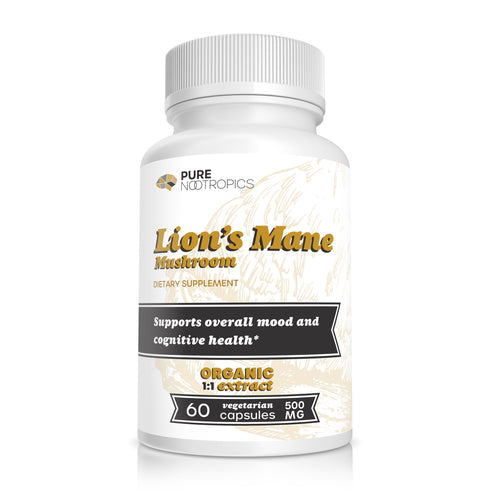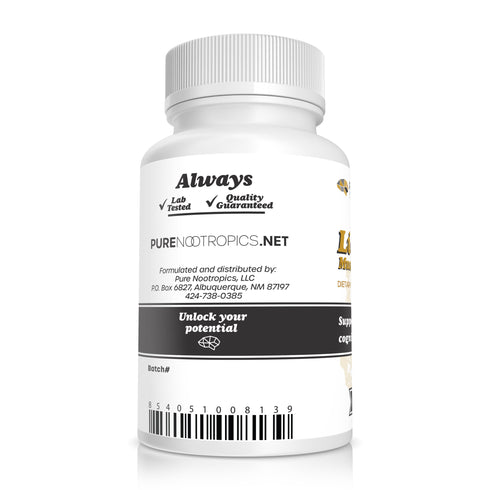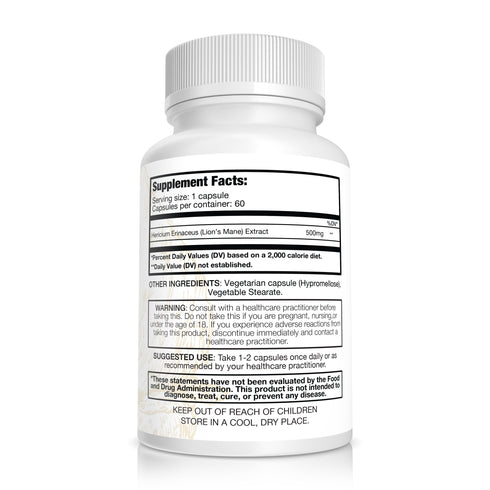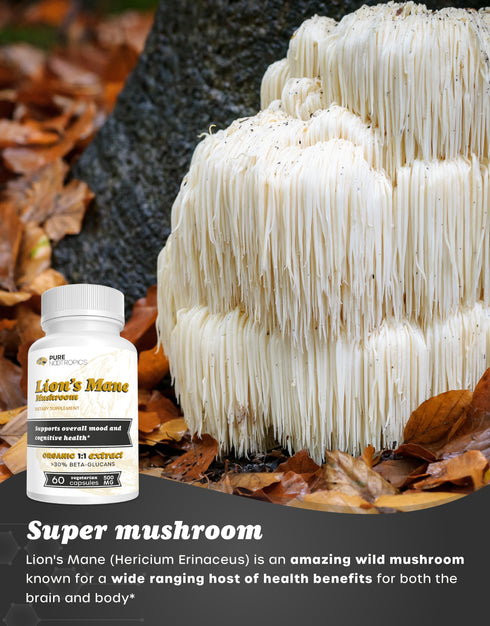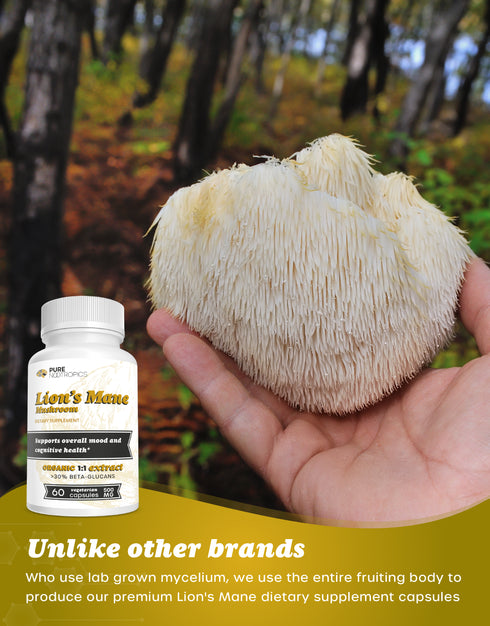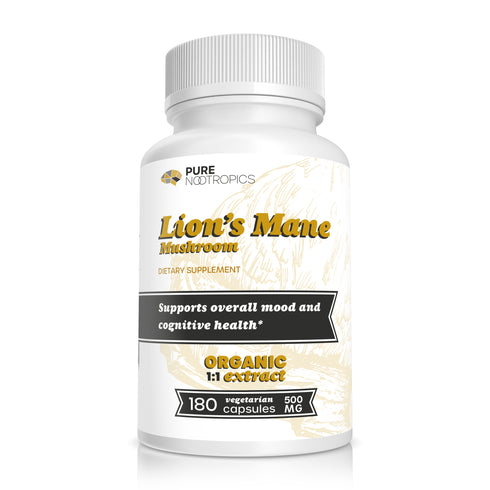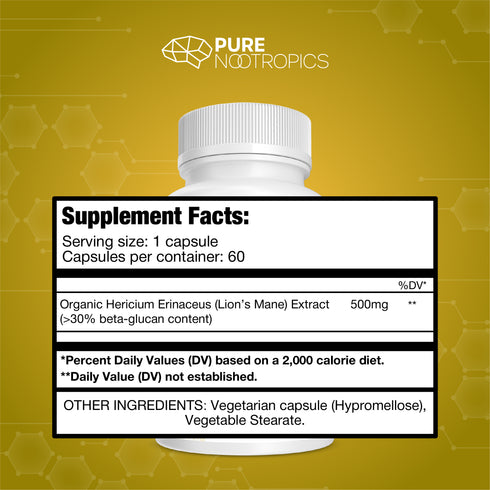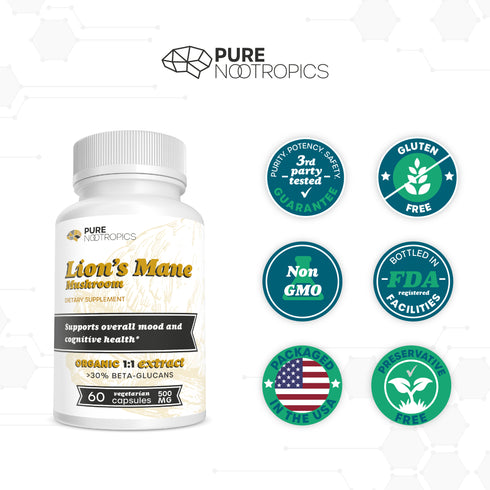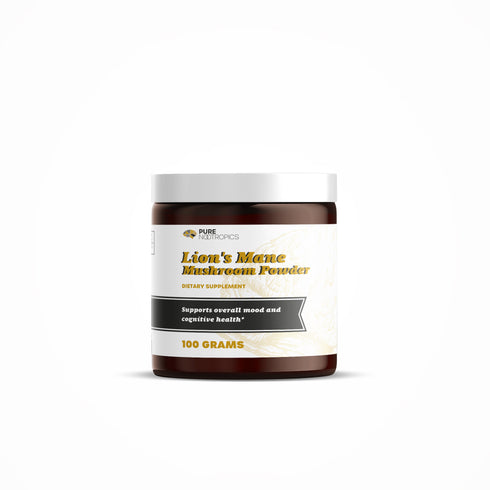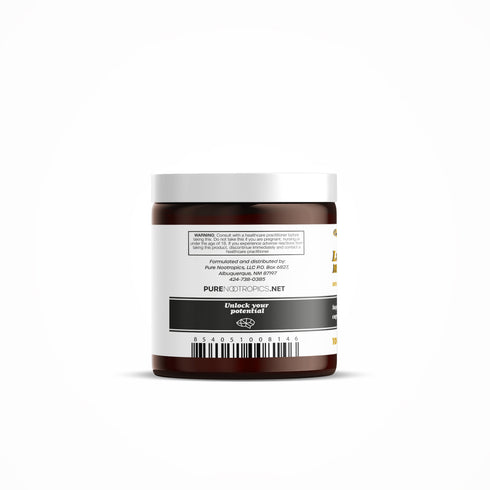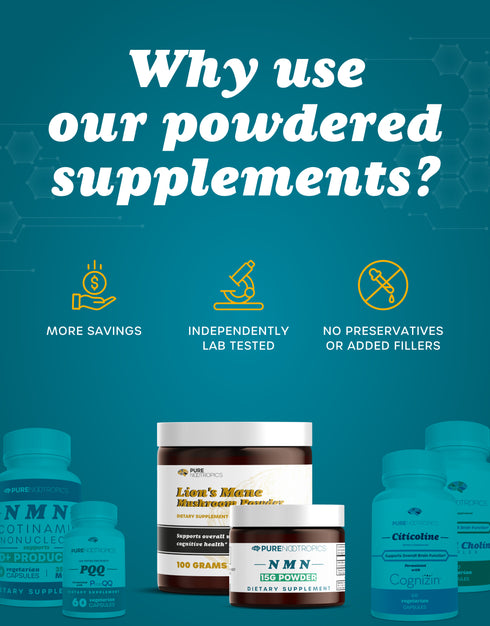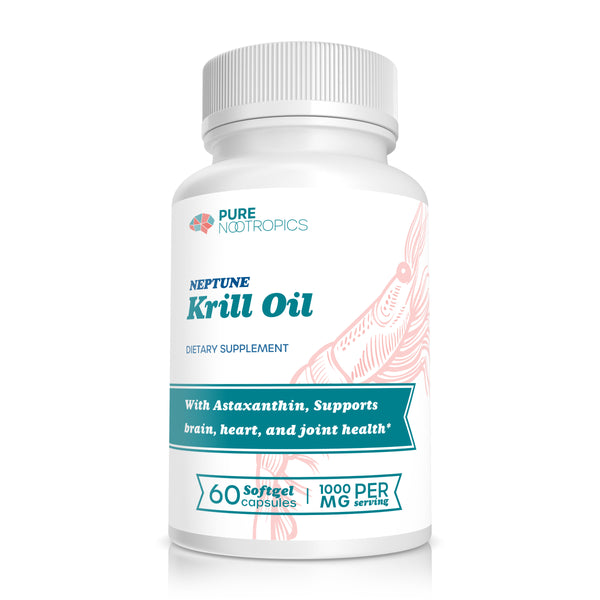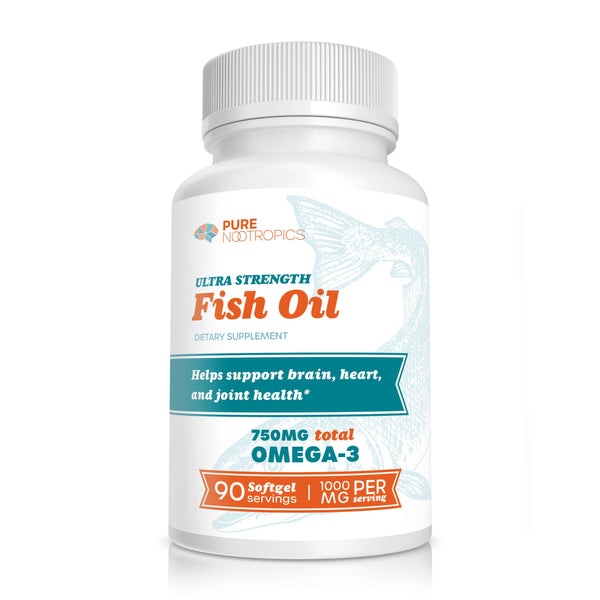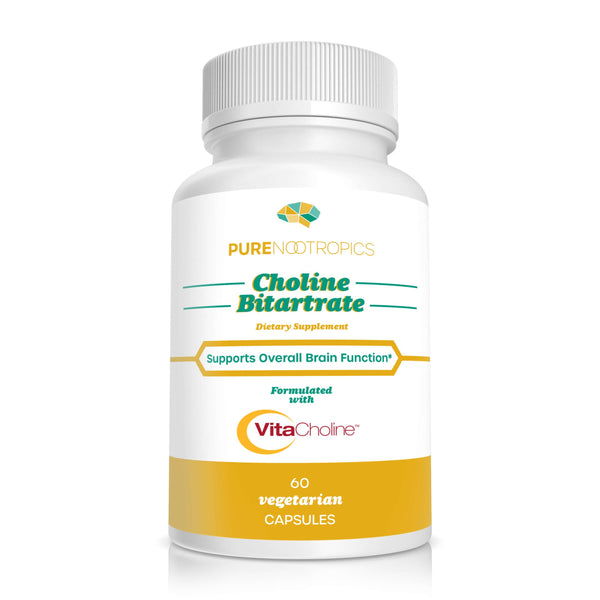Lion’s Mane (Hericium erinaceus, also known as Yamabushitake) is a mushroom that supports mood, general well-being, and overall cognition.
Lion’s Mane Mushroom Benefits
Pure Nootropics provides high quality mushroom extracts, using only 100% organic whole fruiting bodies which are rigorously tested and guaranteed pure.
Description
Lion's Mane has been a hugely popular nootropic for centuries in Chinese folkloric remedies, and now Western science and society is beginning to catch up to its extraordinary benefits.
As a mushroom, the primary active compounds are polysaccharides, or beta-glucans. The fruiting body of the mushroom contains the highest content of the B-glucan polysaccharides. (1).
Dosage
You may be aware of our two different Lion's Mane products.
The 1:1 extract is higher in polysaccharides than the 8:1, and is recommended for overall well-being, whereas the 8:1 is more suitable for cognitive support.
Pure Nootropics’ Lion’s Mane Mushroom Extract Capsules provide 500 mg per 1 capsule. Suggested use for adults is 2 capsules by mouth once daily, or as directed by your healthcare practitioner.
The references below are not meant to imply that any of our products treat, cure, or diagnose any disease or human condition. References to clinical studies and pre-clinical studies may use varying dosages and may not represent the dosages or subsequent results of products we sell; however, the references provided are pertinent to the subject supplement itself. References provided are intended for research and informational purposes only and do not represent the entire body of knowledge available on the subject(s) referenced; nor do they represent all possible outcomes associated with the subject(s) referenced including, but not limited to, adverse effects, precautions, or chemical interactions within the human body. The Content provided on this website is not intended to be a replacement for professional medical advice, treatment or diagnosis. Never ignore the advice of a medical professional or delay in attaining professional advice because of information or impressions you gather on this website. Choosing to rely on any information provided by the Content of this website is solely at your own risk. We encourage our audience to do their own research beyond the resources we have provided so your decision is as educated as possible.
• Mood support*
https://www.ncbi.nlm.nih.gov/pubmed/20834180
• Supports overall cognitive health*
https://www.ncbi.nlm.nih.gov/pubmed/18844328/
1. Spelman, Kevin, et al. “Neurological Activity of Lion’s Mane (Hericium Erinaceus).” Journal of Restorative Medicne, vol. 6, 2017, doi:DOI 10.14200/jrm.2017.6.0108. https://restorativemedicine.org/wp-content/uploads/2017/12/lions-mane.pdf.
2. Nagano, M, et al. “Reduction…by 4 Weeks Hericium Erinaceus Intake.” Biomed Res., vol. 31, no. 4, Aug. 2010, pp. 231–17., www.ncbi.nlm.nih.gov/pubmed/20834180.
3. Mori, K, et al. “Improving Effects of the Mushroom Yamabushitake (Hericium Erinaceus) on Mild Cognitive Impairment: a Double-Blind Placebo-Controlled Clinical Trial.” Phytother Res., vol. 23, no. 3, Mar. 2009, pp. 367–72., doi:doi: 10.1002/ptr.2634. https://www.ncbi.nlm.nih.gov/pubmed/18844328/.
4. Mori, K, et al. “Nerve Growth Factor-Inducing Activity of Hericium Erinaceus in 1321N1 Human Astrocytoma Cells.” Biol Pharm Bull., vol. 31, no. 9, Sept. 2008, pp. 1727–32., www.ncbi.nlm.nih.gov/pubmed/18758067.
5. Liang, B, et al. “Antihyperglycemic and Antihyperlipidemic Activities of Aqueous Extract of Hericium Erinaceus in Experimental Diabetic Rats.” BMC Complement Altern Med, vol. 13, no. 253, Oct. 2013, doi:doi: 10.1186/1472-6882-13-253. https://www.ncbi.nlm.nih.gov/pubmed/24090482?dopt=Abstract.
6. Liu, J, et al. “Anti-Fatigue Activities of Polysaccharides Extracted from Hericium Erinaceus.” Exp Ther Med., vol. 9, no. 2, Feb. 2015, www.ncbi.nlm.nih.gov/pubmed/25574220?dopt=Abstract.
7. “Hericium Erinaceus.” Natural Medicines, Foods, Herbs & Supplements, naturalmedicines.therapeuticresearch.com/databases/food,-herbs-supplements/professional.aspx?productid=1536#pharmacokinetics.


